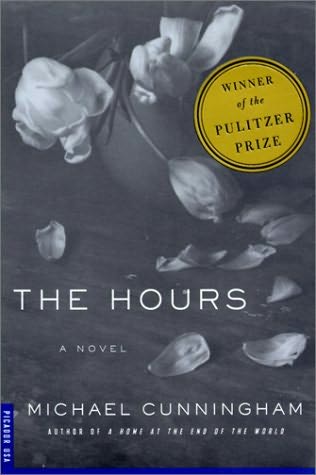
Evening by Susan Minot was beautifully written. I was familiar with the film version that came out to limited release this last year (the screenplay was done by Michael Cunningham, and was materially different than the book--still a fine film in its own right) and on the special features of the DVD (thank you Redbox) I saw an interview with the author, and my interest was piqued. Her writing style is very spare--reminiscent of many of the mid 20th century author's styles (Hemmingway, Faulkner) but used in a very post-modern feminist way. Much of the prose reads like a kind of poetry--think Virginia Woolfe meets Sandra Cisneros--and I was fascinated and impressed with this poetic version of stream of consciousness. Overall I was very impressed with the quality of the novel. It dealt with very poignant issues without becoming overly sentimental, and I felt that the characters were believable and real--which I had been disappointed in a few of my previous reads. I would recommend this to people who can handle or even like novels with non-traditional prose, and don't mind shifts in time and/or perspective. If you like the novels The Heart is a Lonely Hunter by Carson McCullers or Caramelo by Sandra Cisneros, I think you would like Evening.
 The next book I picked up was related by the association of the two authors--Michael Cunningham wrote the screenplay for Evening, and I was familiar with the film version of The Hours. I studied Virginia Woolfe a fair amount in various British Literature courses, and I firmly believe that before either seeing the movie or reading the book, a familiarity with Woolfe's Mrs. Dalloway is absolutely necessary. First of all, Mrs. Dalloway is a spectacular piece of fiction--Woolfe's language is exquisite and I think the concept of the novel is pure genius. Cunningham does a superb job of capturing many of the elements from Dalloway in The Hours--and to get the full effect you really must read the book. Something that might turn some people off to the novel: Michael Cunningham deals extensively with homosexuality in his work. As a gay writer he sees the world from that perspective, and it is an obvious factor in his work. I studied enough "queer theory" (yes, that is the technical term for it) in my university studies not to be fazed by homosexual themes/characters--so I thoroughly enjoyed the novel. It was very well written, and I wholeheartedly agree that it deserved the Pulitzer. Having given that footnote about Cunningham's . . . gayness . . . if that is what you want to call it, The Hours isn't about homosexuality. It is about dealing with loss, living with mental illness, love, and what the price is of living a full life. The themes are deep and very relevant for all of us, no matter our religious affiliation or sexual orientation. If you liked the novels Possession by A.S. Byatt or Eve's Apple by Jonathan Rosen, I think you would enjoy this novel.
The next book I picked up was related by the association of the two authors--Michael Cunningham wrote the screenplay for Evening, and I was familiar with the film version of The Hours. I studied Virginia Woolfe a fair amount in various British Literature courses, and I firmly believe that before either seeing the movie or reading the book, a familiarity with Woolfe's Mrs. Dalloway is absolutely necessary. First of all, Mrs. Dalloway is a spectacular piece of fiction--Woolfe's language is exquisite and I think the concept of the novel is pure genius. Cunningham does a superb job of capturing many of the elements from Dalloway in The Hours--and to get the full effect you really must read the book. Something that might turn some people off to the novel: Michael Cunningham deals extensively with homosexuality in his work. As a gay writer he sees the world from that perspective, and it is an obvious factor in his work. I studied enough "queer theory" (yes, that is the technical term for it) in my university studies not to be fazed by homosexual themes/characters--so I thoroughly enjoyed the novel. It was very well written, and I wholeheartedly agree that it deserved the Pulitzer. Having given that footnote about Cunningham's . . . gayness . . . if that is what you want to call it, The Hours isn't about homosexuality. It is about dealing with loss, living with mental illness, love, and what the price is of living a full life. The themes are deep and very relevant for all of us, no matter our religious affiliation or sexual orientation. If you liked the novels Possession by A.S. Byatt or Eve's Apple by Jonathan Rosen, I think you would enjoy this novel.
No comments:
Post a Comment